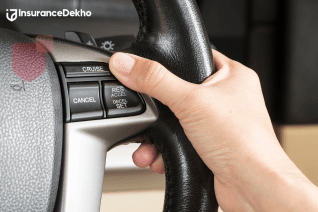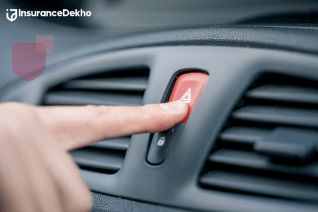How to Maintain Your Car’s Fuel Efficiency
Simple Tips to Maximize Your Car’s Mileage and Save on Fuel
Do you want to save money every time you drive? First, you must master car fuel efficiency. Driving manners and maintaining the car go hand in hand. The more gas you use, the more it impacts your wallet. Moreover, this comprehensive guide tells you exactly how to save money on fuel and money. Above all, you will learn simple tricks ready to use now.

Understanding Fuel Efficiency
What is Fuel Efficiency?
In simple terms, fuel efficiency measures how far your car travels on one gallon of gas. For example, if your vehicle gets 30 miles per gallon, you can drive 30 miles using just one gallon. Better efficiency also means spending less at the pump and helping the environment.
Factors Affecting Fuel Efficiency
There are a few things that affect how much fuel your car consumes. First, how you drive makes all the difference. Second, regular maintenance ensures that your vehicle runs smoothly. Third, other factors, such as weather and road conditions, affect the way your car consumes fuel. Knowledge of these fundamentals helps you maintain car fuel efficiency better.
Effective Driving Habits
Drive Sensibly
Smooth driving saves gas. Quick starts and sudden stops can waste up to 33% more fuel. Speed up slowly and brake gently while also keeping an eye on the traffic ahead and avoiding sudden changes in speed.
Observe speed limits
Burn less gas by driving faster. You will waste more for every five mph over 60 mph - an extra 20 cents per gallon. Cruise control on highways is best, and keeping within or below the speed limit also saves you money and keeps you safe.
Don't Idle for Too Long
Turn off your engine when you stop for more than a minute. Modern cars do not need long warm-ups. In addition, idling for just 10 minutes can waste a quarter to a half gallon of gas. Most importantly, less idling means more savings.
Use the Highest Gear Possible
Use less fuel. Therefore, shift up as soon as your car runs smoothly. For automatic vehicles, drive-in "D" and avoid sport modes. Furthermore, using overdrive on highways cuts engine speed and saves gas.
Plan Your Routes
Thoughtful planning saves fuel. First, combine several errands into one trip. Next, avoid rush hour when possible. Furthermore, GPS can be used to find routes with fewer stops. Subsequently, you'll spend less time stuck in traffic burning gas.
Vehicle Maintenance for Optimal Efficiency
Regular Servicing
Well-maintained cars consume less gas. Repairing a significant maintenance problem may enhance fuel efficiency by as much as 40%. Moreover, oil changes facilitate the smooth performance of your engine. Lastly, tune-ups maintain everything in the correct working order.
Keep Your Tires Properly Inflated
Check your tire pressure once a month. Undersized or under-inflated tires waste gas and wear out faster. For example, proper tire pressure can improve gas mileage by as much as 3%. Additionally, adequate tire pressure makes your car safer to drive.
Replace Air Filters
Clean air filters make the engine breathe better. Thus, inspect your air filter every 15,000 to 30,000 miles. Besides, a fresh air filter will boost acceleration by up to 11%. More so, clean filters save your engine from dirt.
Inspect Wheel Alignment
Proper alignment saves fuel and tires. For instance, lousy alignment makes your car work hard to move forward. In addition, have the alignment checked if your vehicle pulls to one side. Lastly, good alignment helps tires last longer, too.
Maintaining your vehicle is beneficial in the long run, especially while submitting a car insurance claim. Your car insurance company thoroughly checks whether the car was working in optimum condition while investigating an accident or theft. If your car had any technical faults which your insurance company wasn’t aware of, you may face issues during the insurance claim process.
Efficient Use of Vehicle Features
Manage Air Conditioning Usage
Clever AC use saves fuel. For example, you will consume less energy at low speeds by using open windows. However, you should use the AC instead of open windows when traveling at highway speeds. Additionally, you can save some AC by parking in the shade.
Limit Excessive Weight
Extra baggage wastes gas. Every 100 pounds drops fuel economy by 1%. Therefore, clean out your trunk regularly. Also, remove roof racks when not in use. Furthermore, carrying less weight helps your car handle better.
Roll Up Windows at High Speeds
Open windows generate drag at more than 45 mph. This increases your engine's workload. Use AC on highways and open windows in town to get the best performance. In addition, the removal of redundant roof racks can reduce wind resistance.
External Factors Affecting Fuel Economy
Weather Conditions
Weather affects fuel use significantly. For example, cold weather makes engines use more gas. Additionally, snow and rain create resistance. Therefore, park in covered spots in lousy weather. Moreover, tire pressure should be checked more often in cold months.
Weather significantly impacts fuel efficiency through:
-
Temperature effects on tire pressure
-
Air density changes
-
Wind resistance
-
Precipitation impacts
-
Cold start fuel consumption
Road Conditions
The quality of roads alters fuel consumption. For example, bad roads make cars perform harder. In addition to this, hills consume more gas than level roads. Moreover, good roads conserve your fuel. Therefore, opt for smooth routes when available.
Road quality and terrain alter fuel consumption in two aspects:
-
Surface texture and resistance
-
Grade changes and elevation
-
Traffic flow patterns
-
Construction zones
-
Conditions of road maintenance
Popular Myths About Fuel Efficiency
Premium Fuels
Most cars don't require premium gas. Putting a premium on a car that doesn't need it wastes money. Additionally, regular gas will usually suffice for the average engine. Finally, get your owner's manual to determine the correct fuel type.
Common myths involving premium fuel are:
-
Higher octane always means increased performance
-
Premium fuel cleans your engine better
-
Premium fuel helps your engine use fuel more efficiently
-
All high-performance vehicles need a premium
-
Premium fuel will make your engine last longer
Gas tank overfilling
Filling past the click wastes money. For example, extra gas might spill or evaporate. Additionally, overfilling can damage your car's systems. Therefore, stop at the first click every time. Moreover, consistent fill-ups help better track the fuel economy.
Myths about filling your gas tank:
-
"Clicking" past complete gives you extra fuel
-
Morning fill-ups provide more fuel
-
Tank location affects fuel delivery
-
Fuel expansion wastes money
-
Full tanks prevent evaporation
Tips for Long-Term Savings
Track Your Mileage
Keep records of your gas usage. First, reset your trip meter at each fill-up. Next, write down how many gallons you buy. Subsequently, you'll know if your car's efficiency changes. Furthermore, tracking helps spot problems early.
Use Fuel-Saving Technology
Modern technology does save gasoline. For instance, most modern automobiles display instantaneous real-time fuel mileage. GPS-based applications further enhance this with promising route finding, and other apps track gas prices to locate optimal prices. Thus, the applications make it simpler to conserve fuel.
Conclusion
Improving your car's fuel efficiency takes small, consistent steps. First, change how you drive. Next, keep up with maintenance. Furthermore, watch outside factors that affect fuel use. Most importantly, these changes save money over time.
Remember these key points:
-
Drive smoothly and plan trips
-
Keep tires properly inflated
-
Remove extra weight
-
Use AC wisely
-
Track your results
Start using these tips today and increase car fuel efficiency. Additionally, you'll see results on your next few fill-ups. Sharing these fuel saving tips also helps other people save, too. Last but not least, good habits lead to long-term savings and a cleaner environment.
By consistently using these strategies and regularly servicing your needs, you could optimize your vehicle's fuel usage and contribute positively to environmental conservancy and wealth. Therefore, the drive to better fuel efficiency involves small steps with the potential for long-term, lasting habits that accrue benefits not only to your vehicle but to you as a user.














































